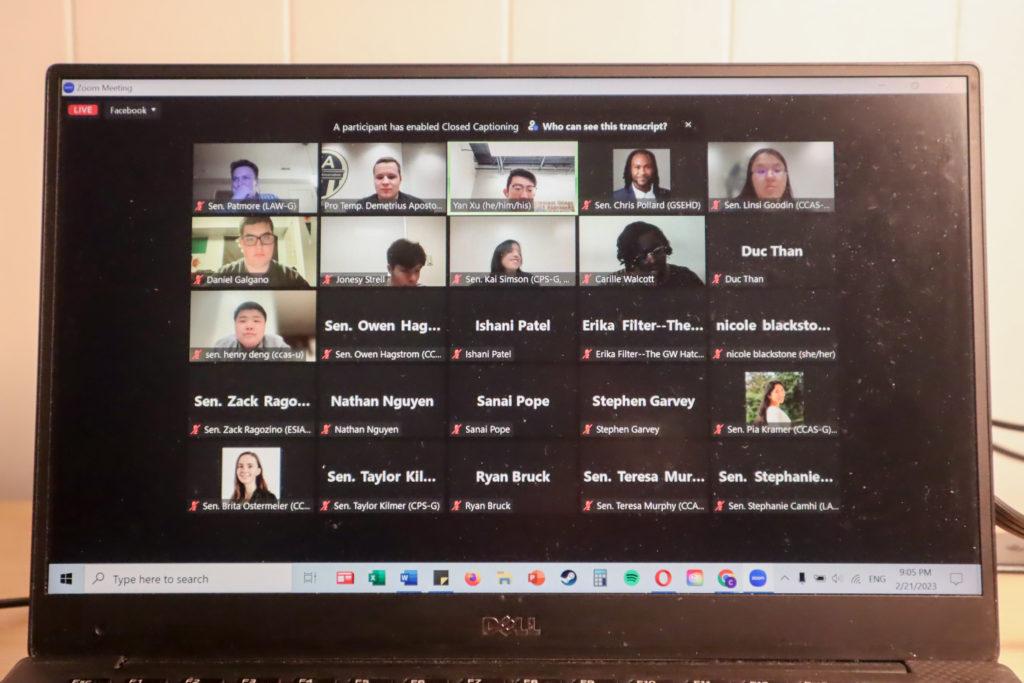The Student Association Senate unanimously amended its bylaws in a special meeting Tuesday in an effort to make the process to apply for funding easier for student organizations.
The Finance Bylaw Revision Act allows students to request funding under categories like registration or enrollment fees, office supplies, food and drinks, transportation and lodging, instead of by line item for specific charges. SA Sen. Linsi Goodin, CCAS-G, said the change will go into effect for the general allocations for the fiscal year 2024 when the funding request process begins on March 1.
She said the current system of line item requests is “too stringent” for student organizations because groups must submit requests to transfer their funds between each individual line item if they want to adjust their funding.
“The biggest change we are making is moving away from the line item format towards category-based funding requests,” she said.
Goodin said co-sponsorship requests for the rest of the semester will still use the line item request system for consistency, so the resolution will go into effect only in preparation for the next academic year.
The resolution adds speaker and performer fees as a category for funding requests, removing the limitation set last year barring the SA from funding guest speakers.
The resolution changes a previous policy approving a maximum of $7,000 for events with fewer than 300 students, instead setting the $7,000 maximum for events with fewer than 350 students. The new bylaws state that the finance committee can allocate a maximum of $10,000 for events attracting 350 or more students.
Events attracting more than 350 students can request funding from the University-Wide Programs Fund.
The resolution mandates the finance committee publicly post its minutes on the SA’s social media within 48 hours of meetings. Goodin said the requirement was installed to improve “accountability and transparency.”
The resolution grants the SA treasurer, a member of the executive cabinet, the power to oversee budget transfers, allowing student organizations to transfer funds across categories.
The resolution removes the ban instituted last year on funding for social media marketing. Goodin said recent successes, like the Career Exploration EXPO and GW Palooza, have demonstrated the need for social media advertising campaigns.
“These initiatives were so successful because of the social media pushes being made to get students involved,” she said. “While there were physical flyers and tabling activities, the outreach made through social media, especially during a post-COVID world, ensured these programs were successful.”
The resolution allows the SA to fund non-religious or cultural food for student organizations, but it stipulates that the finance committee will prioritize funding requests for religious and cultural foods.
The next SA Senate meeting will be held on Feb. 27 at 8:30 pm. in the University Student Center’s Continental Ballroom.








